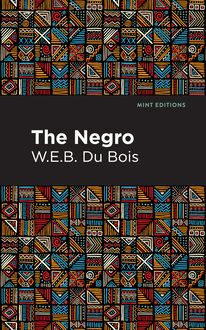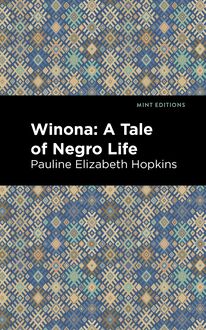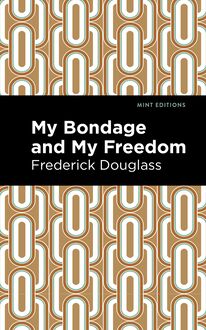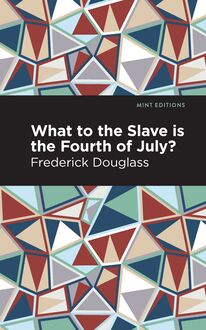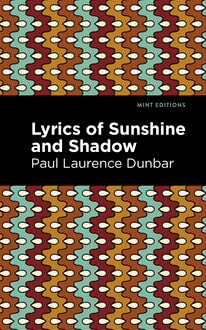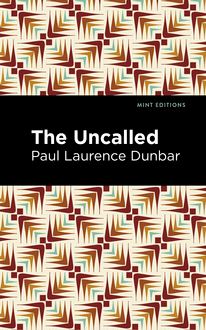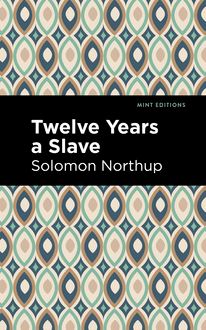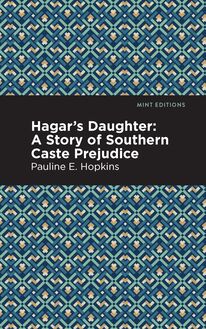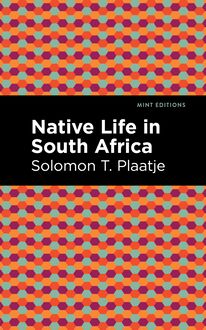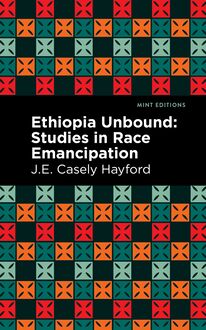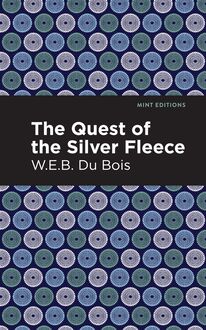-
 Univers
Univers
-
 Ebooks
Ebooks
-
 Livres audio
Livres audio
-
 Presse
Presse
-
 Podcasts
Podcasts
-
 BD
BD
-
 Documents
Documents
-
- Cours
- Révisions
- Ressources pédagogiques
- Sciences de l’éducation
- Manuels scolaires
- Langues
- Travaux de classe
- Annales de BEP
- Etudes supérieures
- Maternelle et primaire
- Fiches de lecture
- Orientation scolaire
- Méthodologie
- Corrigés de devoir
- Annales d’examens et concours
- Annales du bac
- Annales du brevet
- Rapports de stage
La lecture à portée de main
Vous pourrez modifier la taille du texte de cet ouvrage
Découvre YouScribe en t'inscrivant gratuitement
Je m'inscrisDécouvre YouScribe en t'inscrivant gratuitement
Je m'inscrisEn savoir plus
Vous pourrez modifier la taille du texte de cet ouvrage
En savoir plus

Description
Frederick Douglass: A Biography (1899) is a book by African American author, lawyer, and political activist Charles Chesnutt. While he is more widely known for “The Goophered Grapevine,” the first story published in The Atlantic by an African American author, Chesnutt was also a gifted biographer whose storytelling ability allowed him to present the life of such a man as Frederick Douglass in a fresh and revelatory light. “From this night of slavery Douglass emerged, passed through the limbo of prejudice which he encountered as a freeman, and took his place in history.” Born in Maryland, Douglass escaped slavery at the age of twenty with the help of his future wife Anna Murray Douglass, a free black woman from Baltimore. In New England, he connected with the influential abolitionist community and joined the African Methodist Episcopal Zion Church, a historically Black denomination which counted Sojourner Truth and Harriet Tubman among its members. In 1839, Douglass became a preacher and began his career as a captivating orator on religious, social, and political matters. He met William Lloyd Garrison, publisher of anti-slavery newspaper The Liberator, in 1841, and was deeply moved by his passionate abolitionism. As Douglass’ reputation and influence grew, he traveled across the country and eventually to Ireland and Great Britain to advocate on behalf of the American abolitionist movement, winning countless people over to the leading moral cause of the nineteenth century. Arguably one of the most influential Americans of all time, Douglass led a life dedicated to democracy and racial equality. With a beautifully designed cover and professionally typeset manuscript, this edition of Charles Chesnutt’s Frederick Douglass: A Biography is a classic of African American literature reimagined for modern readers.
Sujets
Informations
| Publié par | Mint Editions |
| Date de parution | 16 novembre 2021 |
| Nombre de lectures | 0 |
| EAN13 | 9781513295145 |
| Langue | English |
| Poids de l'ouvrage | 1 Mo |
Informations légales : prix de location à la page 0,0300€. Cette information est donnée uniquement à titre indicatif conformément à la législation en vigueur.
Extrait
Frederick Douglass
A Biography
Charles W. Chesnutt
Frederick Douglass: A Biography was first published in 1899.
This edition published by Mint Editions 2021.
ISBN 9781513292298 | E-ISBN 9781513295145
Published by Mint Editions ®
MintEditionBooks.com
Publishing Director: Jennifer Newens
Design & Production: Rachel Lopez Metzger
Project Manager: Micaela Clark
Typesetting: Westchester Publishing Services
C ONTENTS P REFACE C HRONOLOGY I II III IV V VI VII VIII IX X XI XII B IBLIOGRAPHY
P REFACE
Frederick Douglass lived so long, and played so conspicuous a part on the world’s stage, that it would be impossible, in a work of the size of this, to do more than touch upon the salient features of his career, to suggest the respects in which he influenced the course of events in his lifetime, and to epitomize for the readers of another generation the judgment of his contemporaries as to his genius and his character.
Douglass’s fame as an orator has long been secure. His position as the champion of an oppressed race, and at the same time an example of its possibilities, was, in his own generation, as picturesque as it was unique; and his life may serve for all time as an incentive to aspiring souls who would fight the battles and win the love of mankind. The average American of today who sees, when his attention is called to it, and deplores, if he be a thoughtful and just man, the deep undertow of race prejudice that retards the progress of the colored people of our own generation, cannot, except by reading the painful records of the past, conceive of the mental and spiritual darkness to which slavery, as the inexorable condition of its existence, condemned its victims and, in a less measure, their oppressors, or of the blank wall of proscription and scorn by which free people of color were shut up in a moral and social Ghetto, the gates of which have yet not been entirely torn down.
From this night of slavery Douglass emerged, passed through the limbo of prejudice which he encountered as a freeman, and took his place in history. “As few of the world’s great men have ever had so checkered and diversified a career,” says Henry Wilson, “so it may at least be plausibly claimed that no man represents in himself more conflicting ideas and interests. His life is, in itself, an epic which finds few to equal it in the realms of either romance or reality.” It was, after all, no misfortune for humanity that Frederick Douglass felt the iron hand of slavery; for his genius changed the drawbacks of color and condition into levers by which he raised himself and his people.
The materials for this work have been near at hand, though there is a vast amount of which lack of space must prevent the use. Acknowledgment is here made to members of the Douglass family for aid in securing the photograph from which the frontispiece is reproduced.
The more the writer has studied the records of Douglass’s life, the more it has appealed to his imagination and his heart. He can claim no special qualification for this task, unless perhaps it be a profound and in some degree a personal sympathy with every step of Douglass’s upward career. Belonging to a later generation, he was only privileged to see the man and hear the orator after his life-work was substantially completed, but often enough then to appreciate something of the strength and eloquence by which he impressed his contemporaries. If by this brief sketch the writer can revive among the readers of another generation a tithe of the interest that Douglass created for himself when he led the forlorn hope of his race for freedom and opportunity, his labor will be amply repaid.
Charles W. Chesnutt
Cleveland, October, 1899
C HRONOLOGY
1817
Frederick Douglass was born at Tuckahoe, near Easton, Talbot County, Maryland.
1825
Was sent to Baltimore to live with a relative of his master.
1833
March. Was taken to St. Michaels, Maryland, to live again with his master.
1834
January. Was sent to live with Edward Covey, slave-breaker, with whom he spent the year.
1835–36
Hired to William Freeland. Made an unsuccessful attempt to escape from slavery, Was sent to Baltimore to learn the ship-calkers trade.
1838
May . Hired his own time and worked at his trade.
September 3 . Escaped from slavery and went to New York City. Married Miss Anna Murray. Went to New Bedford, Massachusetts. Assumed the name of “Douglass.”
1841
Attended anti-slavery convention at New Bedford and addressed the meeting. Was employed as agent of the Massachusetts Anti-slavery Society.
1842
Took part in Rhode Island campaign against the Dorr constitution. Lectured on slavery. Moved to Lynn, Massachusetts.
1843
Took part in the famous “One Hundred Conventions” of the New England Anti-slavery Society.
1844
Lectured with Pillsbury, Foster, and others.
1845
Published Frederick Douglass’s Narrative .
1845–46
Visited Great Britain and Ireland. Remained in Europe two years, lecturing on slavery and other subjects. Was presented by English friends with money to purchase his freedom and to establish a newspaper.
1847
Returned to the United States. Moved with his family to Rochester, New York. Established the North Star , subsequently renamed Frederick Douglass’s Paper . Visited John Brown at Springfield, Massachusetts.
1848
Lectured on slavery and woman suffrage.
1849
Edited newspaper. Lectured against slavery. Assisted the escape of fugitive slaves.
1850
May 7. Attended meeting of Anti-slavery Society at New York City. Running debate with Captain Rynders.
1852
Supported the Free Soil party. Elected delegate from Rochester to Free Soil convention at Pittsburg, Pennsylvania. Supported John P. Hale for the Presidency.
1853
Visited Harriet Beecher Stowe at Andover, Massachusetts, with reference to industrial school for colored youth.
1854
Opposed repeal of Missouri Compromise.
June 12. Delivered commencement address at Western Reserve College, Hudson, Ohio.
1855
Published My Bondage and My Freedom . March . Addressed the New York legislature.
1856
Supported Fremont, candidate of the Republican party.
1858
Established Douglass’s Monthly . Entertained John Brown at Rochester.
1859
August 20 . Visited John Brown at Chambersburg, Pennsylvania.
May 12 (October). Went to Canada to avoid arrest for alleged complicity in the John Brown raid.
November 12. Sailed from Quebec for England.
Lectured and spoke in England and Scotland for six months.
1860
Returned to the United States. Supported Lincoln for the Presidency.
1862
Lectured and spoke in favor of the war and against slavery.
1863
Assisted in recruiting Fifty-fourth and Fifty-fifth Massachusetts colored regiments. Invited to visit President Lincoln.
1864
Supported Lincoln for re-election.
1866
Was active in procuring the franchise for the freedmen.
September. Elected delegate from Rochester to National Loyalists’ Convention at Philadelphia.
1869
Moved to Washington, District of Columbia. Established
(1870)
(Edited and then bought) the New National Era .
1870
Appointed secretary of the Santo Domingo Commission by President Grant.
1872
Appointed councillor of the District of Columbia. (Moved family there after a fire (probably arson) destroyed their Rochester home and Douglass’s newspaper files.) Elected presidential elector of the State of New York, and chosen by the electoral college to take the vote to Washington.
1876
Delivered address at unveiling of Lincoln statue at Washington.
1877
Appointed Marshal of the District of Columbia by President Hayes.
1878
Visited his old home in Maryland and met his old master.
1879
Bust of Douglass placed in Sibley Hall, of Rochester University. Spoke against the proposed negro exodus from the South.
1881
Appointed recorder of deeds for the District of Columbia.
1882
January. Published Life and Times of Frederick Douglass , the third and last of his autobiographies. August 4. Mrs. Frederick Douglass died.
1884
February 6. Attended funeral of Wendell Phillips. February 9. Attended memorial meeting and delivered eulogy on Phillips. Married Miss Helen Pitts.
1886
May 20. Lectured on John Brown at Music Hall, Boston.
September 11. Attended a dinner given in his honor by the Wendell Phillips Club, Boston.
September. Sailed for Europe.
Visited Great Britain, France, Italy, Greece, and Egypt, 1886–87.
1888
Made a tour of the Southern States.
1889
Appointed United States minister resident and consul-general to the Republic of Hayti and chargé d’affaires to Santo Domingo.
1890
September 22. Addressed abolition reunion at Boston.
1891
Resigned the office of minister to Hayti.
1893
Acted as commissioner for Hayti at World’s Columbian Exposition.
1895
February 20. Frederick Douglass died at his home on Anacostia Heights, near Washington, District of Columbia.
In a few places in the text of Frederick Douglass , bracketed words have been inserted to indicate possible typographical errors, other unclear or misleading passages in the 1899 original edition, and identifications that were not needed in 1899 but may be needed in the twenty-first century.
I
If it be no small task for a man of the most favored antecedents and the most fortunate surroundings to rise above mediocrity in a great nation, it is surely a more remarkable achievement for a man of the very humblest origin possible to humanity in any country in any age of the world, in the face of obstacles seemingly insurmountable, to win high honors and rewards, to retain for more than a generation the respect of good men in many lands, and to be deemed worthy of enrolment among his country’s great men. Such a man was Frederick Douglass, and the example of one who thus rose to eminence by sheer force of character and talents that neither slavery nor caste proscription could crush must ever remain as a shining illustration of the essential superiority of manhood t
-
 Univers
Univers
-
 Ebooks
Ebooks
-
 Livres audio
Livres audio
-
 Presse
Presse
-
 Podcasts
Podcasts
-
 BD
BD
-
 Documents
Documents
-
Jeunesse
-
Littérature
-
Ressources professionnelles
-
Santé et bien-être
-
Savoirs
-
Education
-
Loisirs et hobbies
-
Art, musique et cinéma
-
Actualité et débat de société
-
Jeunesse
-
Littérature
-
Ressources professionnelles
-
Santé et bien-être
-
Savoirs
-
Education
-
Loisirs et hobbies
-
Art, musique et cinéma
-
Actualité et débat de société
-
Actualités
-
Lifestyle
-
Presse jeunesse
-
Presse professionnelle
-
Pratique
-
Presse sportive
-
Presse internationale
-
Culture & Médias
-
Action et Aventures
-
Science-fiction et Fantasy
-
Société
-
Jeunesse
-
Littérature
-
Ressources professionnelles
-
Santé et bien-être
-
Savoirs
-
Education
-
Loisirs et hobbies
-
Art, musique et cinéma
-
Actualité et débat de société
- Cours
- Révisions
- Ressources pédagogiques
- Sciences de l’éducation
- Manuels scolaires
- Langues
- Travaux de classe
- Annales de BEP
- Etudes supérieures
- Maternelle et primaire
- Fiches de lecture
- Orientation scolaire
- Méthodologie
- Corrigés de devoir
- Annales d’examens et concours
- Annales du bac
- Annales du brevet
- Rapports de stage
